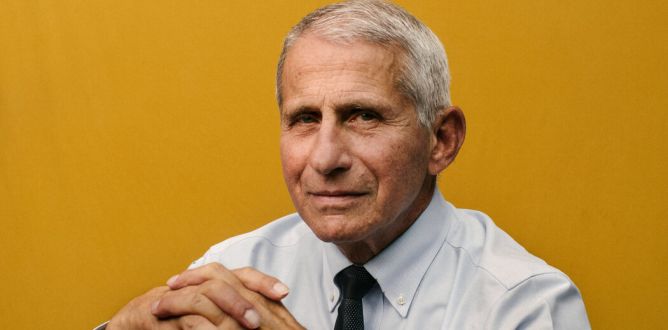Fauci Parent Guide
This documentary neither glorifies nor demonizes its subject, simply presenting his work on covid-19 in the context of his prior experience.
Parent Movie Review
Public health officials are usually invisible, working quietly behind the scenes to protect people from the pathogens that have plagued humans throughout history. One of the oddest parts of the coronavirus pandemic has been the sudden visibility of these once anonymous officials –the most visible of whom is Dr. Anthony Fauci. Director of the National Institute of Allergy and Infectious Diseases and the Chief Medical Advisor to the President, Dr. Fauci has found himself in the eye of the storm. The silver-haired octogenarian has become a starkly polarizing figure, viewed either as a voice of scientific reason or as a charlatan who is needlessly terrorizing the US population with overblown fears of Covid-19.
The documentary Fauci does not focus on the current controversies swirling around its subject – aside from references to death threats and his security detail. Rather, this doc explains how Dr. Fauci has addressed the coronavirus pandemic in the context of his past work on another evolving disease: AIDS.
Through interviews with Dr. Fauci, his family, colleagues, and patients, this film illuminates the early years of the battle against AIDS. When Dr. Fauci, then a clinician and researcher with the National Institutes of Health, noticed in 1981 that clusters of gay men were dying of unusual pneumonias and Kaposi’s sarcoma (a type of cancer), he realized that a new disease had emerged in America. Against the advice of some of his colleagues, he switched gears and focused his research on uncovering the cause of this new plague. Inconclusive research and dead patients were to mark his early years of work on AIDS, leaving him emotional to this day as he recollects and grief and loss of that era. Fauci also became the target of AIDS activists, who fought for faster progress and greater research funding.
One of the most interesting aspects of Dr. Fauci’s work in the AIDS epidemic is not his clinical acumen, but his empathy and flexibility. Initially unsettled by the vitriol of the AIDS activists, Fauci put himself in their shoes, only to realize that he sympathized with them and understood their arguments. This epiphany pushed him to meet with the protestors and to invite their input into designing research studies – a decision which strengthened the protocols and led to better scientific results in the long run.
Watching Dr. Fauci’s past work in the context of the coronavirus pandemic can feel disorienting. Yes, Dr. Fauci was vilified in public demonstrations. But this didn’t stop productive work across the aisle: in fact, all participants recognized the protests as “political theater” with a level of detachment that’s difficult to imagine today. One of richest ironies of the film is the difference in protests then and now. In the 1980s, Fauci and the NIH were vilified for not creating drugs or vaccines quickly enough. In 2021, Fauci and the drug companies are attacked for providing vaccines at a speed some find suspicious.
Documentaries can be a difficult sell to the viewing public since they are often (and unfairly) seen as dry or dull. Fauci is clearly topical and relevant. It neither glorifies nor demonizes its subject, choosing instead to dispassionately review his work. Parents or teachers interested in sharing the movie with teens can be assured that swearing is moderate (aside from one sexual expletive) and AIDS is discussed without detailed conversations about sexual behavior. The documentary offers an illuminating look at a public servant who has fought some of the biggest public health battles of our time and it gives audiences the chance to learn from his successes and his setbacks.
Directed by John Hoffman, Janet Tobias. Starring Anthony Fauci, Christine Grady, Bono, George W Bush, Jennifer Fauci, Susan Rice. Running time: 104 minutes. Theatrical release October 6, 2021. Updated February 24, 2022Watch the trailer for Fauci
Fauci
Rating & Content Info
Why is Fauci rated PG-13? Fauci is rated PG-13 by the MPAA for thematic material, some strong language, and some suggestive material
Violence: There are scenes of protests, some of which turn violent and which see police responding with force. A man and his family receive death threats. Patients die of AIDS and some dead bodies are briefly seen.
Sexual Content: None noted.
Profanity: There are under a dozen profanities in the film, including one sexual expletive, four terms of deity, four scatological curses, and some minor swear words.
Alcohol / Drug Use: A photograph is briefly seen in which a man is holding a cigarette.
Page last updated February 24, 2022
Fauci Parents' Guide
Why do you think Dr. Fauci is such a controversial figure? What traits or advice make him popular or unpopular with different groups?
How does Dr. Fauci’s experience in the AIDS crisis influence his work during the coronavirus pandemic?
For more about Dr. Fauci’s past medical contributions, check out these links:
The New Yorker: How Anthony Fauci Became America’s Doctor
NPR: Long Before Covid-19, Dr. Anthony Fauci “Changed Medicine in America Forever”
The Guardian: “New disease, no treatment, no cure” how Anthony Fauci’s fight against Aids prepared him for Covid-19
Home Video
Related home video titles:
For a chronological look at the US government response to Covid-19, you can watch the documentary Totally Under Control.
For a fictionalized look at doctors trying to end a pandemic, you can watch Contagion.

